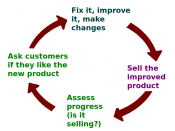Have you ever heard of the saying, "Man, your sweat pumps are on the line" or "Busier than a one-handed paper hanger"? That is how many workers feel in the engineering management arena these days. Everything seems to be in crisis mode more times than not. And why is that? Why is it that all of us are so busy all of the time? Our cell phones never stop ringing, our laptops are never more than an arm's length away, and we send emails during meetings from mobile handheld office mini-computers (PDAs). The term "9-1-1 syndrome" is a condition discussed in many circles. Many are also afflicted with the "urgency addiction" and this is discussed in detail on webmd.com (Bobinski, 2004). This paper will identify how urgency impacts the technical industry and some possible ways to combat the vicious cycle of crisis management and fire fighting that poor priority management causes.
In many of our technical environments, we have great technical people, but pitiful managers. The root cause of most engineering disasters is due to poor management of resources to include, people, budget, and schedule.
The engineering consulting industry is normally divided into three levels: the Division Manager, project or program managers, and the project engineering staff. Most of the urgency in the industry trickles down from customer requests and the need to maintain satisfactory customer service. The effects of poor task prioritization affect almost everyone on every level. The Division Manager, whose responsibility is customer satisfaction, may get a call from a customer regarding a complaint, request, etc. They, in-turn, go to the program or project manager in charge of the project and tell them that they need to react immediately in order to keep the customer happy. The project manager then enlists the help of the engineering staff...


